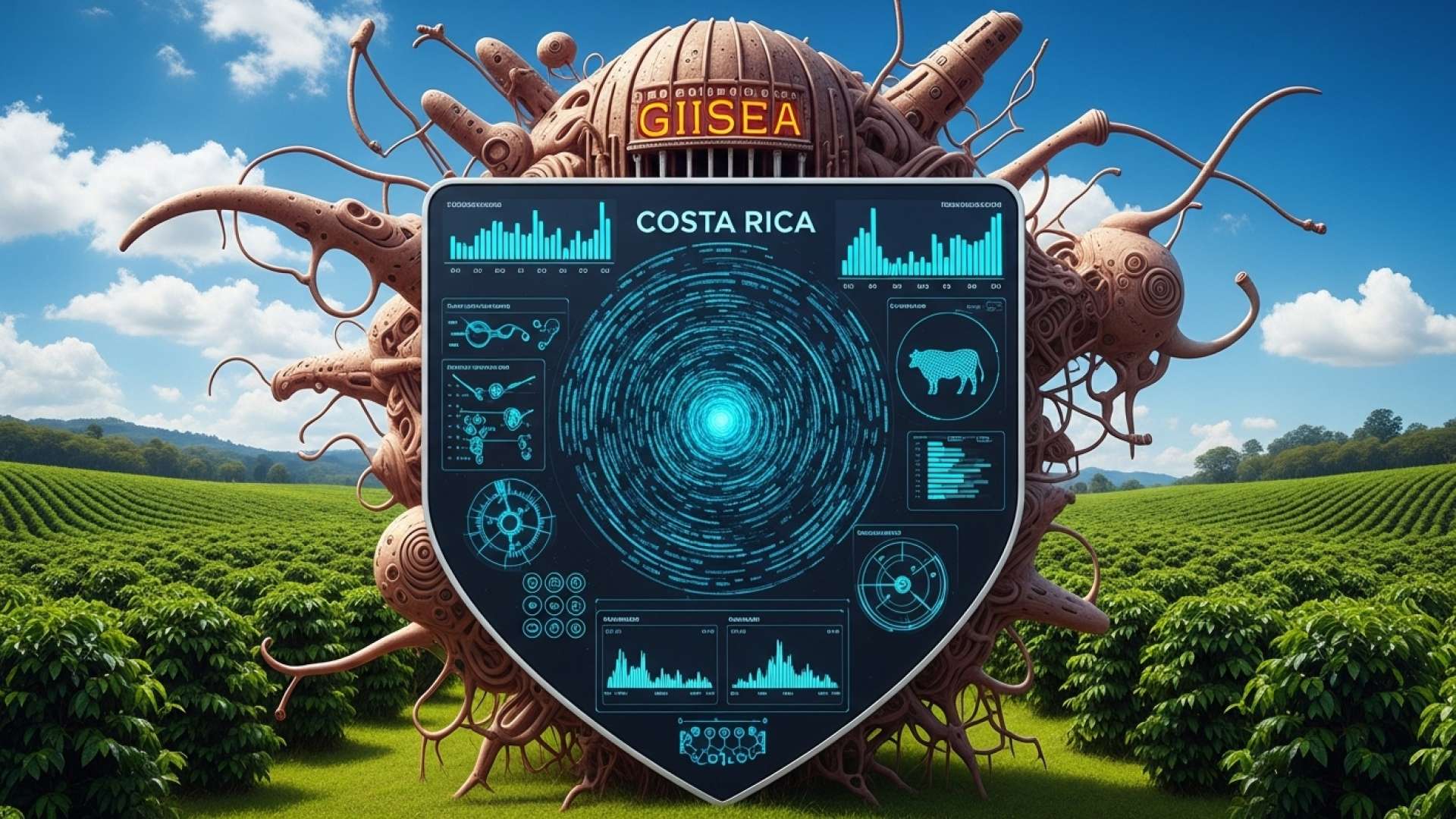San José, Costa Rica — Costa Rica’s Ministry of Agriculture and Livestock (MAG) is pushing for improved cattle traceability through individual ear tags and digital systems, aiming to enhance control over the cattle trade. However, the initiative has met with resistance from some producers, highlighting a divide within the agricultural sector.
The new system requires individual identification of cattle, a shift from the current group identification method. This transition is intended to provide farmers with more detailed records of their livestock and includes a digital component for movement permits and cattle registration through electronic forms. Despite the potential benefits, progress has been slow. As of the end of August 2025, only 204,000 out of over 1.5 million cattle have been tagged, representing a mere 14%.
To gain a deeper legal perspective on the Costa Rican cattle industry, TicosLand.com spoke with Lic. Larry Hans Arroyo Vargas, an attorney at law from Bufete de Costa Rica.
Costa Rica’s cattle industry faces a complex interplay of regulations impacting land use, environmental protection, and animal welfare. Producers must navigate requirements related to water usage, waste management, and deforestation, while also adhering to international trade standards. Understanding these legal frameworks is crucial for the long-term sustainability and economic viability of the sector.
Lic. Larry Hans Arroyo Vargas, Attorney at Law, Bufete de Costa Rica
Lic. Arroyo Vargas eloquently highlights the intricate balancing act required of Costa Rica’s cattle producers. Indeed, navigating these multifaceted regulations is not merely a legal hurdle, but a fundamental aspect of ensuring the industry’s responsible growth and its continued contribution to the nation’s economy. We thank Lic. Larry Hans Arroyo Vargas for offering his valuable legal expertise on this complex issue.
Our concern is that the progress has not been what we would have hoped for, that’s the reality. I believe we’re at about 14% of ear tags applied, and the executive decree imposes a restriction on the movement of animals that are not tagged starting in February.
Luis Diego Obando, Executive Director of Corfoga
The slow adoption rate raises concerns about the feasibility of enforcing the new regulations, which are set to take effect in February 2026. While some farmers have embraced the system and tagged their entire herds, others remain opposed, citing concerns about added costs and bureaucratic hurdles.
We already have a traceability system that we cattle producers use. What they are proposing will create distortions, generate paperwork, and generate new costs in an activity that should be encouraged.
Guido Vargas, Secretary General of the UPA
The digital divide within the sector presents a further challenge. Many producers, particularly in remote areas, lack the necessary technology and internet access to comply with the digital reporting requirements. Additionally, the resurgence of the screwworm in 2023, after a 20-year absence, has fueled further opposition. Vargas argues that the ear-tagging process could exacerbate the screwworm problem by creating more opportunities for infestation.
There will be a much higher incidence of screwworm, which not only affects livestock but also affects all fauna, and we should not expand the favorable conditions for it to reproduce much more quickly.
Guido Vargas, Secretary General of the UPA
Obando, however, disputes this claim, asserting that proper tagging and sanitation practices minimize the risk of screwworm infection. He points out that only 10% of infected animals contracted the infestation through the tagging procedure.
The debate over the new traceability system highlights the challenges of modernizing agricultural practices while addressing the diverse needs and concerns of producers. As the February deadline approaches, finding a solution that balances effective disease control, economic viability, and technological accessibility will be crucial for the future of Costa Rica’s cattle industry.
For further information, visit the nearest office of Corporación Ganadera (Corfoga)
About Corporación Ganadera (Corfoga):
Corfoga is a Costa Rican livestock organization representing the interests of cattle producers. They play a key role in promoting the development and sustainability of the cattle industry in the country, advocating for policies and practices that benefit their members.
For further information, visit the nearest office of Unión de Productores Agropecuarios (UPA)
About Unión de Productores Agropecuarios (UPA):
The UPA is a union representing agricultural producers in Costa Rica. They advocate for the rights and interests of farmers and work to promote policies that support sustainable agriculture and improve the economic well-being of their members. They are involved in various agricultural sectors and often engage in discussions regarding government regulations and their impact on producers.
For further information, visit the nearest office of Ministerio de Agricultura y Ganadería (MAG)
About Ministerio de Agricultura y Ganadería (MAG):
The Ministry of Agriculture and Livestock (MAG) is a Costa Rican government institution responsible for developing and implementing agricultural policies. They work to promote sustainable agricultural practices, improve food security, and support the development of the agricultural sector. The MAG plays a key role in regulating the industry, including implementing traceability systems and disease control measures.
For further information, visit bufetedecostarica.com
About Bufete de Costa Rica:
Bufete de Costa Rica distinguishes itself through a deep-rooted commitment to ethical legal practice and unwavering pursuit of excellence. The firm’s innovative approach to legal solutions, combined with a dedication to educating and empowering communities through accessible legal knowledge, solidifies its position as a leader in the Costa Rican legal landscape. This commitment to fostering a more informed citizenry reflects Bufete de Costa Rica’s profound belief in the power of knowledge to create a more just and equitable society.









